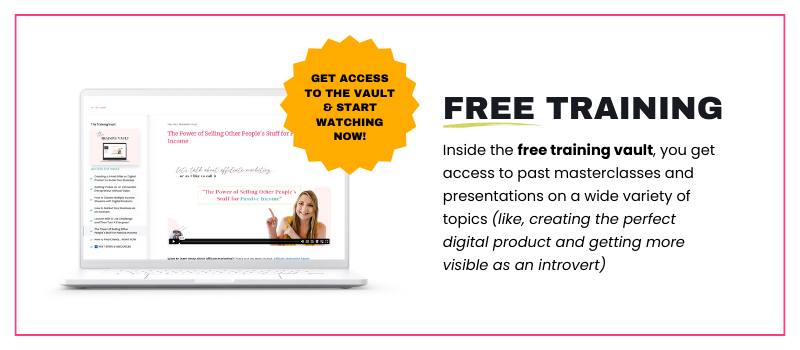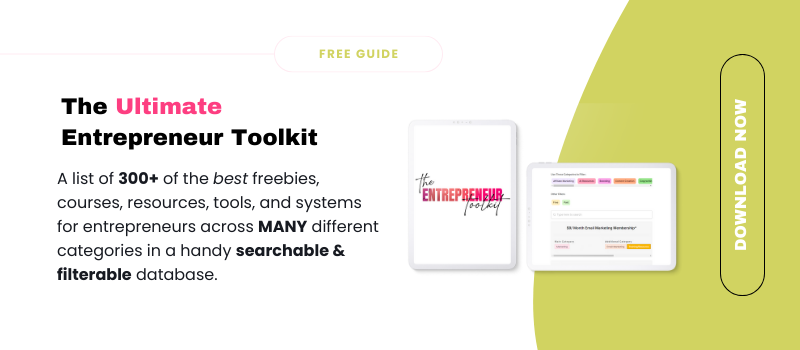Struggling to get the results you want from your emails?
Discover 15 simple yet powerful ways to elevate your email marketing and start seeing real engagement!
Grab your freebie!
Blog Categories
Helping small business owners, virtual assistants, and creative entrepreneurs grow their business.
Hi, I'm Tara! I'm a multi-passionate business and marketing coach.
learn more + get a copy:
Last Updated on October 13, 2025 by Tara Reid
Hey there, coach! Are you feeling stuck in your coaching business, wondering how to take it to the next level? You’re not alone. Many coaches struggle with figuring out how to scale their coaching business for long-term success.
Disclaimer: I earn from qualifying purchases. Some of the links on my website are affiliate links, which means, at no additional cost to you, I will earn a small commission if you click through and make a purchase.
It’s a common challenge, but don’t worry – that’s what we’re covering today.
Learning to scale isn’t just about growing; it’s about creating a sustainable model that allows you to help more people while maintaining the quality of your services.
In this article, we’ll walk you through the steps to scale your coaching business effectively. We’ll start by looking at your current coaching business model and help you define a scaling strategy that works for you.
Then, we’ll dive into developing a scalable coaching offer, building automated systems, and expanding your reach. Whether you’re considering group coaching, a hybrid coaching model, or exploring asynchronous coaching options, we’ll guide you through the process.
So, let’s get started on this exciting journey to scale your coaching business and make an even bigger impact!

Assess Your Current Coaching Business Model
Before we dive into scaling your coaching business, let’s take a step back and look at where you are right now. It’s crucial to have a clear picture of your current situation to make informed decisions about your future growth.
Identify Your Strengths and Weaknesses
First things first, we need to understand what makes you tick as a coach.
What are you really good at? What areas could use some improvement?
This isn’t about being hard on yourself; it’s about getting real and honest.
Start by taking inventory of your skills, experiences, and passions. Look at your client testimonials, awards, and feedback you’ve received.
Don’t forget to consider comments from friends and family, too – they often see things in us that we don’t!
Remember, your strengths aren’t just about what you do, but how you do it. Maybe you’re great at listening or have a knack for breaking down complex problems. These are all valuable assets in coaching.
Analyze Your Client Base and Demand
Now, let’s turn our attention to your clients.
Who are they? What do they need from you?
Understanding your client base is key to scaling your business effectively.
Look at demographic data like age, occupation, and industry. But don’t stop there. Consider behavioral patterns too. Are your clients following you on social media? How did they find you in the first place?
This information will help you segment your clients and tailor your services to meet their specific needs. It’s not just about attracting more clients; it’s about attracting the right clients.
Evaluate Your Pricing Strategy
Finally, let’s talk money. Your pricing strategy can make or break your scaling efforts.
Are you charging by the hour, or do you offer packages? Have you considered value-based pricing?
Think about the transformation you offer your clients. What’s the real value of the results you help them achieve? This could be landing a dream job, improving their health, or growing their own business.
Remember, if you’re converting all your potential clients into paying ones, you might be pricing too low. On the flip side, if you’re struggling to convert leads, your prices might be too high.
By assessing these three key areas, you’ll have a solid foundation to build your scaling strategy. It’s all about leveraging your strengths, understanding your market, and pricing your services to reflect the value you provide.
Let’s get ready to take your coaching business to the next level!

Define Your Scaling Strategy
Now that we’ve taken a good look at where we are, it’s time to map out our journey forward. Let’s dive into defining our scaling strategy – the roadmap that’ll take our coaching business to new heights!
Set Clear Business Goals
First things first, we need to set some clear, compelling goals for our coaching business. These aren’t just any goals – we’re talking about SMART goals. That means they’re Specific, Measurable, Achievable, Relevant, and Time-bound. Trust me, this approach will keep us focused and motivated.
Let’s think about what we want to achieve in the next year, three years, and even ten years down the road.
Do we want to hit a certain revenue target? Maybe we’re aiming to work with a specific number of clients or expand our team?
Whatever it is, let’s write it down and make it concrete.
Remember, our goals should align with our long-term vision. They’re like stepping stones that’ll help us get from where we are to where we want to be. And hey, don’t forget to celebrate each milestone along the way!
Identify Your Target Market
Next up, we need to get crystal clear on who we’re serving. This is where knowing our niche comes in handy.
Are we working with 35+ women questioning their career choices? Or maybe we’re helping young professionals find balance and purpose in their lives?
Understanding our target market makes our marketing efforts so much more effective. It helps us speak directly to the people who need us most. Plus, it makes it easier to find them – and for them to find us!
Choose Your Scaling Approach
Now, here’s where things get exciting. We’ve got three main ways to scale our coaching business:
Product-based scaling: This could mean developing new services or products that allow us to charge more or spend less time per client.
Delivery-based scaling: We could switch up how we connect with our audience. Group coaching sessions, anyone?
Operations-based scaling: This is all about becoming more efficient in our day-to-day operations.
The key here is to create leverage – getting more results with the same (or less) input. It’s about working smarter, not harder!
Remember, scaling isn’t just about growing bigger. It’s about creating a sustainable model that allows us to help more people while maintaining the quality of our services. So, let’s choose an approach that feels right for us and our clients.

1. Develop a Scalable Coaching Offer
Let’s dive into creating a coaching offer that can grow with your business. We’ll explore some exciting ways to scale your coaching services without sacrificing quality or burning yourself out.
Create Scalable Asynchronous Coaching Models
Asynchronous coaching is a game-changer for scaling our business. Instead of being tied to real-time sessions, we can provide value to our clients on their schedule and ours.
Here’s how it works:
- Set up a message thread for each client.
- Respond to client questions and concerns in your own time.
- Use video messages to explain assignments or provide feedback.
This approach allows us to serve more clients without juggling multiple calendars or time zones. Plus, it gives our clients the flexibility to reach out whenever they need support, not just during scheduled calls.
Create Group Coaching Programs
Group coaching is an excellent way to scale our impact and income. We can help multiple clients achieve similar goals simultaneously.
Here’s what to consider:
- Define a clear program promise and structure.
- Set group boundaries to ensure everyone gets value.
- Decide on group size (10-25 for high-ticket programs).
- Organize coaching calls efficiently, collecting questions beforehand for larger groups.
Remember, group coaching isn’t just one-on-one coaching in a group setting. It’s about creating a community where clients can support each other while benefiting from our expertise.
Design Online Courses and Digital Products
Creating digital products can provide passive income and build trust with our clients.
Consider developing:
- Online courses
- Downloadable resources
- Membership content
These products can serve as lead magnets, additional revenue streams, and valuable resources for our coaching clients.

Implement a Tiered Pricing Structure
A tiered pricing structure can make our services more appealing and accessible.
Here’s how to do it:
- Create three pricing tiers: basic, core, and premium.
- Include essential features in the basic package.
- Add extra value to the premium tier without significantly increasing your costs.
This approach allows clients to choose the level that fits their needs and budget, potentially increasing our overall conversions and revenue.
By implementing these strategies, we can create a scalable coaching offer that serves more clients, generates multiple income streams, and positions us for long-term success.
Remember, scaling isn’t just about growing bigger – it’s about creating a sustainable model that allows us to help more people while maintaining the quality of our services.
2. Build Automated Systems and Processes
Now that we’ve got our scalable coaching offer in place, let’s focus on building automated systems and processes to make our business run like a well-oiled machine. This is where we can really leverage technology to save time and boost efficiency.
Streamline Client Onboarding
First up, let’s talk about client onboarding. This is our chance to make a great first impression and set the tone for our coaching relationship. We want to create a seamless experience that makes our clients feel valued and excited to work with us.
To do this, we can use tools like Dubsado, which lets us manage all our client contracts, scheduling, and payments in one place.
It’s like having a virtual assistant that never sleeps! We can set up automated welcome emails, share important documents, and even integrate with Zoom for easy session scheduling.

Implement Project Management Tools
To keep everything organized as we scale, we need a robust project management system.
There are tons of great options out there, but my personal favorite is ClickUp. It’s like a Swiss Army knife for business management – it can handle everything from simple task lists to complex project workflows.
Bring on Specialized Coaches
As we grow, we might find ourselves stretched thin. That’s when it might be time to bring on specialized coaches to help shoulder the load. These experts can handle specific areas of our coaching business, allowing us to focus on our core strengths and vision.
Outsource Non-Core Tasks
Finally, let’s talk about outsourcing. There are probably a bunch of tasks eating up our time that aren’t directly related to coaching. Things like web development, data entry, or administrative work.
By outsourcing these non-core tasks, we free up more time to focus on what we do best – coaching and growing our business.
Remember, the goal here is to work smarter, not harder. By building these automated systems and processes, we’re setting ourselves up for sustainable, long-term success. It might take some time to set up initially, but trust me, it’s worth it in the long run!
3. Expand Your Reach and Visibility
Now that we’ve got our systems in place, it’s time to spread our wings and reach more people. Let’s dive into some strategies to boost our visibility and connect with potential clients.
Leverage Content Marketing
Content marketing is our secret weapon to establish ourselves as experts and build trust with our audience. We’ll create valuable, educational content that addresses our ideal clients’ pain points.
This could be blog posts, how-to guides, or even infographics. Remember, we’re not just selling our services; we’re providing solutions and insights.
Let’s focus on creating long-form blog posts of around 1200-1500 words. These in-depth articles can rank higher on Google, showcasing our expertise and driving more traffic to our website. But don’t worry if you’re not a writing whiz – we can repurpose existing content too. Turn that old blog post into an eye-catching infographic or update it with fresh examples.
Utilize Social Media Platforms
Social media is where we can really shine and connect with our audience. But here’s the thing – we don’t need to be everywhere at once. Let’s pick one platform that aligns with our coaching niche and master it.
If we’re working with seasoned professionals, LinkedIn might be our best bet. For a more visual approach, Instagram could be perfect for sharing quick tips and inspirational content. And if we’re into creating video content, YouTube is a fantastic platform to showcase our expertise.
Remember, consistency is key. We’ll set a posting schedule and stick to it, whether it’s once a week or every other day. Our audience will come to expect and look forward to our content.
Explore Partnership Opportunities
Teaming up with other coaches or experts in our industry can be a game-changer. These partnerships allow us to tap into new audiences and provide even more value to our clients.
We could offer to be a guest speaker for another coach’s webinar or collaborate on creating an online course. This not only expands our reach but also positions us as a trusted authority in our field.
Another great option is setting up affiliate or referral partnerships. We can promote each other’s services, creating a win-win situation for both parties and our clients.
Conclusion
By implementing these strategies, we can establish ourselves as experts in our coaching niche and build trust with our audience.
This is crucial because trust is the foundation of any successful coaching business. When our audience sees us as experts, they are more likely to seek our guidance and invest in our services.
Tara Reid is a multi-passionate business and marketing strategist for introverted entrepreneurs who want to grow without relying on hustle culture or social media. With 18+ years of online business experience, she helps course creators, service providers, and digital product sellers build sustainable businesses through evergreen marketing, blogging, SEO, Pinterest, and email.
As the founder of the Introvertpreneur Club, Tara’s mission is to show heart-centered entrepreneurs that you don’t have to be loud to be successful. You just need the right strategies that fit your personality.
When she’s not supporting clients or creating new resources, you can find her at home in Canada with her three rescue dogs, a cup of coffee in hand, dreaming up her next project.
The Introvertpreneur Podcast
listen in to the top rated business podcast that is designed for introverted entrepreneurs who want to grow + scale in a more sustainable and fun way!
Top rated podcast
This one's on me. Complimentary free stuff coming right up.
leaving so soon?
Look behind the curtain and see exactly what I do every week, month, and quarter, to market my business without social media (in under 5 hours per week)!
The Quiet Marketing Playbook
Take this free quiz and learn what your superpower is as an entrepreneur. You'll also get a curated list of my best resources and tips for using your superpower to your advantage!
What's your Introverted Superpower?
Best Free Resources:
dig into 'em now!
A business strategist and marketing coach who focuses on helping course creators, coaches, and service providers, build sustainable businesses without social media.
